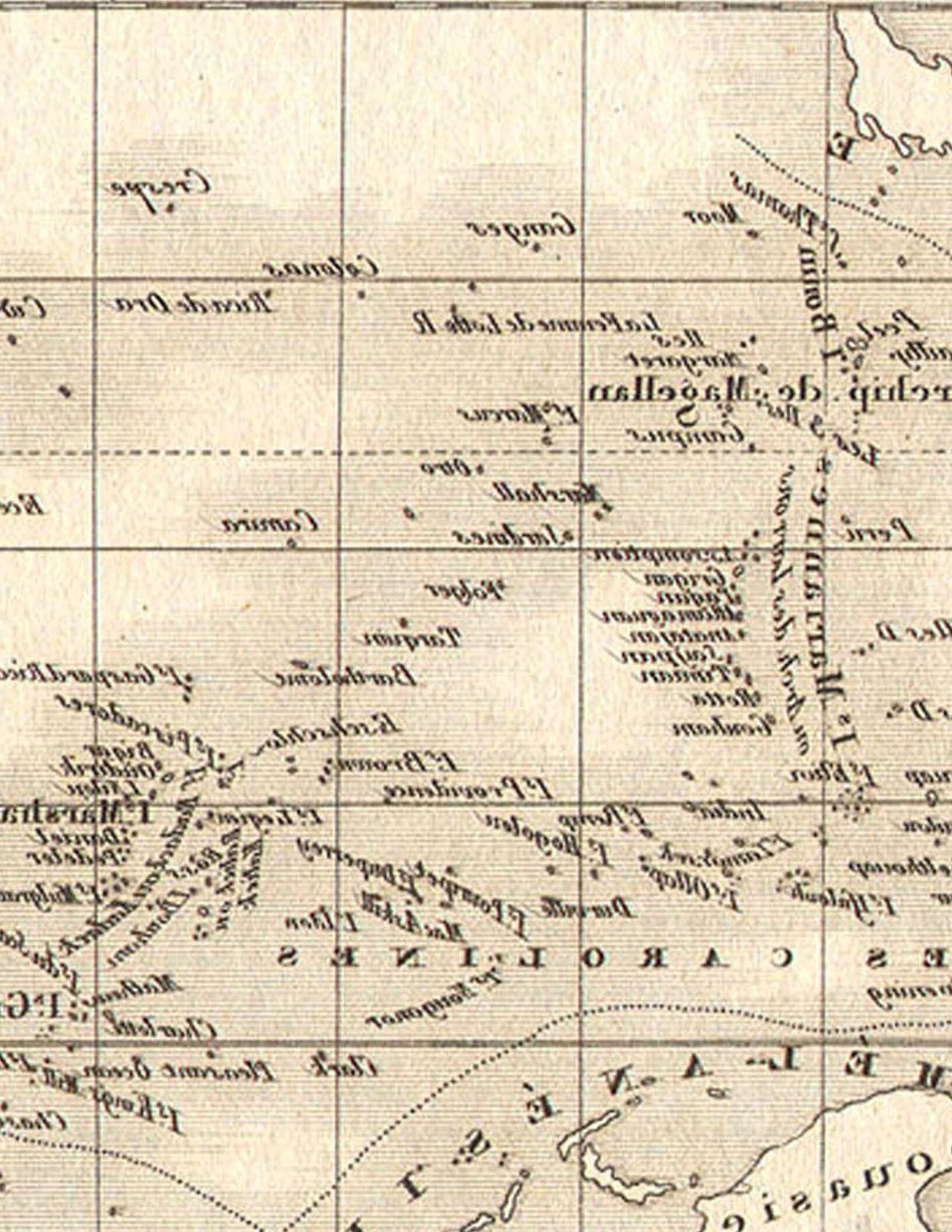Micronesian Area Research Center Richard





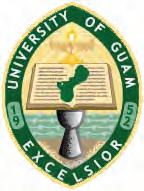
publication materials provided by the Micronesian Area Research Center (MARC)

I say this also knowing full well that there are nagging problems, such as our inability to adequately provide needed facilities and logistic support for our academic programs; the conditions of our roads and grounds around the campus; and personal and professional discomfort for some of you arising out of our growing aches and pains and the changes that are taking place or not taking place.
1/
- Delivered at the General Faculty meeting, January 27, 1972.
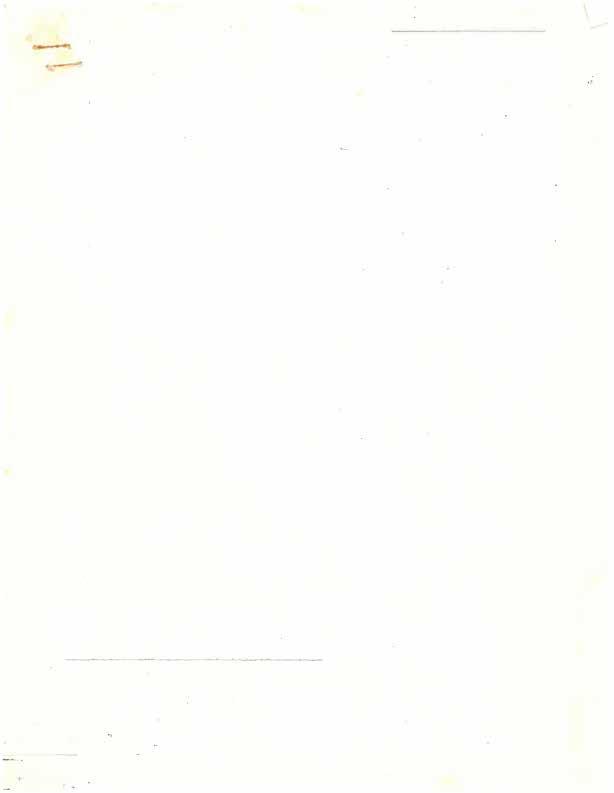
and the richest in the nation -- are staggering beneath the weight of many problems that still defy solutions. There is a grave crisis of the spirit in ·our colleges and universities across the nation -a morbid sentiment that descends upon people in institutions when their sense of security is threatened, and especially when they are· intellectually and emotionally unable to respond to problems and crises except in terms of self-protective compromises, compromises of principle and purpose. There are similar "crisis of the spirit" and "self-protective" reactions in some corners of this University and I regret their existence -- but I am sure most of you are acquainted with the higher education situation elsewhere in America and will realize that we are much less burdened than our colleagues in other places. Nevertheless, we do have our own difficulties and I assure you that I am doing all I can to resolve them.
Speaking of resolving problems, you might be interested to know that at my request, the Federal Comptroller's Office reviewed and evaluated our business accounting and procedures. I have _been advised that the glaring deficiencies they found in fiscal audit over a overall year ago have been corrected ·and our/situation has improved tremendously, thanks to Vice President F�ank Chargualaf and his staff. This verified the earlier findings of the private audit firm of Arthur Young and Company.
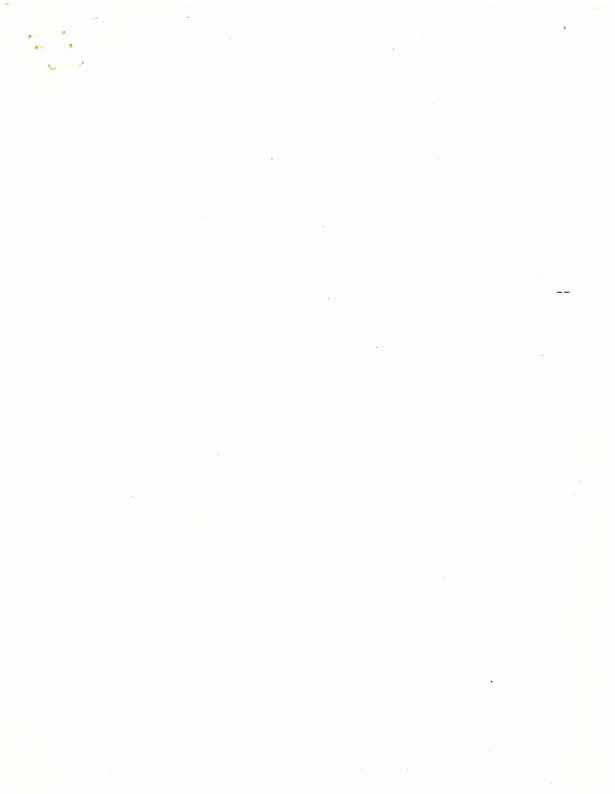
This is a sore point for some of you, but our efforts to raise the general level of education of the faculty met with initial success. A number of you took advanced work this past summer -- seven (7) under UOG assistance. Three of our faculty members are now pursuing doctoral degrees, also with University assistance. Faculty development is a priority item with me and I hope to obtain funds for fulltime advanced studies for two or three faculty members next year.
Among our faculty members the percentage of terminal · degree holders increased from 28% last year to 46% this year. I intend to continue to pursue the terminal degree policy until we reach the established goal. The interest of the present and future generations of students demands faculty members with the highest level of academic or professional training in their fields.
For needed facilities on the campus we are actively seeking five (5) million dollars for the College of Business and Applied Technology, the College of Education, the physical education building, and the much needed expansion of our library. There are no local funds available for capital improvements, so I am hopeful that Federal loan authorization for these projects will be forthcoming before the end of this year. You must fully realize that we will be operating in cramped quarters for the next two to three years. Meanwhile, we are taking steps within the limits of our financial and human resources to improve our present facilit ies. We hope to air-condition the Fine

Arts a uditoriu m and as m any classrooms as we can afford in order to·enhance the teaching and learning process and, hopefully, to cut down on m aintenance and upkeep.
We are adding parking and access to the Dental Building from Federal funds I was able to secu re last year. There are no Federal funds for the roads around the cam p us, b u t I am very optim istic that I can get local appropriation for this purpose this year.
During the past twenty years, I have been privileged to observe the mat uration of the College of Gua m, from the quonset days when it offere d little m ore than a collection of post-gradu ate courses for gradu ates of George Washington High School; u ntil the present when it has becom e a u niversity in its own right. A m ajor reason for this is the generally high qu ality of our student bo dy. Among other things, there is a higher level of sophistication among our present stud ents than am ong �heir earlier co unterparts. They exhibit a greater spirit of inquiry and a thirst for knowledge which were generally· lacking among so me students a few years back. I sense that there is more of a spirit of exploration a mong our students now than was the case just ten years ago.
Quite significan tly, every student I have m et and conversed with on this campus -- and there are many of the m, Guamanians and non-Gua manians alike -- expressed to me his or her aspiration for a career that would satisfy a strong desire to be of service to the people of this Territory;
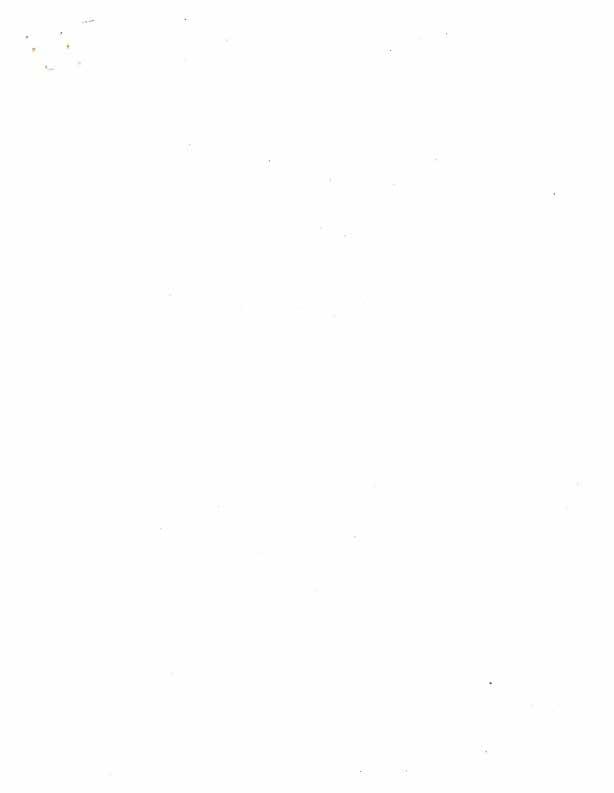
a career that will provide both personal and professional satisfaction and meet economic needs, in that order of priority. As administrators and teachers, all of us must work together to help students fulfill their goals and ambitions. The students are, after all, the primary reason for our being here. It is not enough that we help them pass courses' and stimulate their creative minds. It is imperative that such efforts must be in consonance with the student's career objective.
While we have plenty of room for improvement in our-instructional programs -- and what university anywhere does not -- I am impressed and very pleased by the continuing efforts of many of you to improve our programs and the teaching and learning process. For example, the College of Arts and Sciences continues to explore ways to formulate a meaningful general education.curriculum for all our students, and to devise new inter-disciplinary programs that are directly related to the technical and professional needs of the Territ ory. The Language Arts faculty is constantly re-assessing its teaching programs and improving the reading a_nd other language skills of our students whose language is other than English. I note, too, the newer, nontraditional courses emerging in the College of Education as its faculty attempts to upgrade the preparation of teachers.
The new College of Business and Applied Technology is giving new life to the business, trade and technology curricula of our University. We expect to see significant improvement in the health-manpower
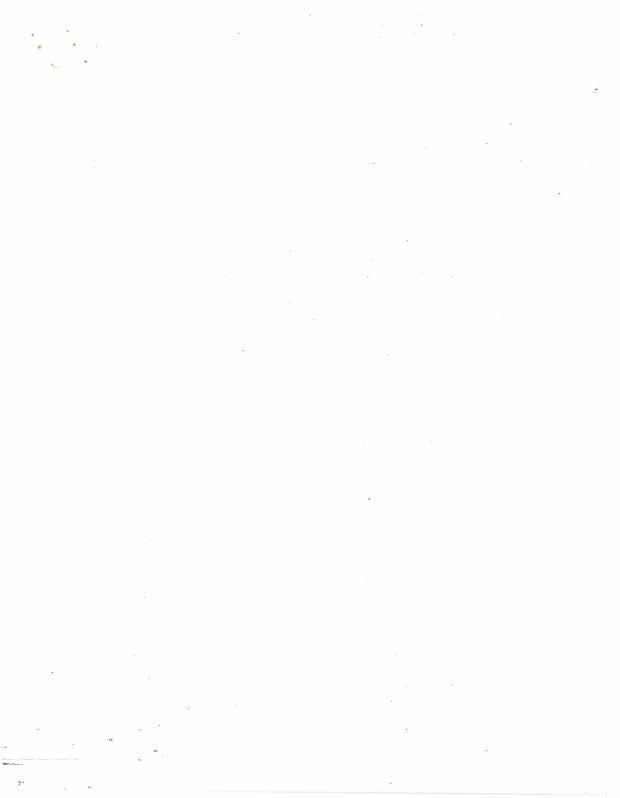
in training and/other activities in response to the growing visitor industry. I look forward also to a greatly strengthened program in CBAT that will contribute toward making our institution a productive community university.
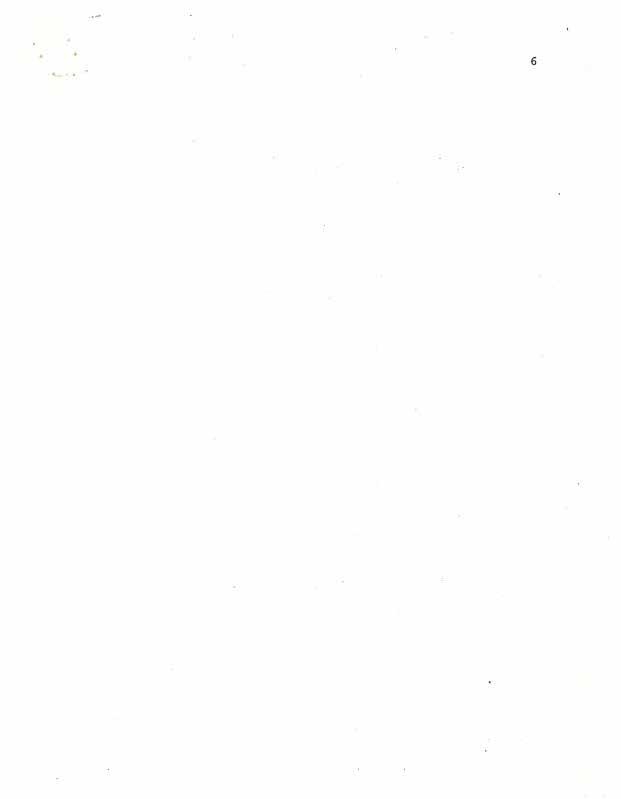
There are other encouraging signs all over the campus of improvements in our course offerings, and I thank and commend those of you who have been helping to set a higher educational tone for our academic and professional-technical programs. Compared to what it was ten years ago, the University of Guam .in 1972 is no doubt a better institution, as it should be; just as ten years from now the University should be a far more superior u�iversity than what it is today. We have only ourselves to blame if it does not become so.
Progress and expansion in the past few years have been notable; but I have discovered that UOG was expanded with little thought of the cost of such expansion. At the present rate of growth, we estimat� a budget of close to 15 million dollars in less than 5 years. In a real sense we are living in a dream world. Buoyed by reports of vast increases in-territorial revenues in recen t years and glowing predictions of more and more to come, I, too, was tempted to bask in that dream world, if only for a short while. Well, ladies and gentlemen, reality has shattered the dream and awakened us to a day of reckoning in a real world, and a real situation that be�rs no resemblance to the vision of abundance which has vanished so suddenly.
The University of Guam will face in 1973 a stringent budget for the first time in its twenty-year history. The budget prospect for Fiscal Year 1973 is the first of what I believe is going to be a way- of-fiscal life for the future. I am convinced that this budget forecast, howev er, is not the result of any resentment against the University or disenchantment with its acitvities as seems to be the case in many U. S. communities. Nor is this an indication that the people of the island are less interested in higher education for their young people; not at all. The cold, hard fact is that the Territory, like our country as a whole and many of our states and communities across the Nation, finds itself in the precarious position of having more public programs and services than there are funds to finance them. The prospect of finding other local means of getting additional revenqes to meet needed. services for 197 3 is zero. Hence, improvement in our budget is not a likely possibility.
My first reaction to the Governor's budget allocation was to protest loudly that. both the University of Guam and the Territory are being short-changed. I may still do that later but at this time such a protest will come close to sounding like the old "wolf, wolf" cry. Moreover, I forewaw the budget forecast and alerted those responsible for preparing your individual budgets. In my memorandum of September 9, 1971, on the budget pr�paration guidelines for FY 1973, I said that "our experience with the long budget process last

year, the reduction in our request by both the Administration and the Legislature (plus m y recent discussions with the Governor's budget and management officials) led me to believe that the University should not expect much in the way of an increase in its operating budget for FY 1973 --·and future years -- unless there is a dramatic increase in revenues ... " . Except for CBAT, most budget proposals submitted to me last· October failed to respond to the guidel ines I outlined in my memorandum. -Hence, I could not really tell from the budget proposals. the order of priority, which I specifi cally requested, in terms of territorial needs for the various programs and positions, both old and new, that were proposed. Consequently I am not convinced at all that more money is the only answer or that money is the real issue. Since I presume all of you were consulted by the Deans or faculty chairmen or department heads on the budget, the budget proposal submitted by each college is my wa y of consulting with your thoughts and ideas and your priorities. You must understand,, however, that from the pers pective of my office, budget decisions are based on overall program priorities for the University as a whole in the light of Territorial priority needs.
So, confronted as we are with a tight budget situation, where do we go fro m here? There have been many suggestions, among them:
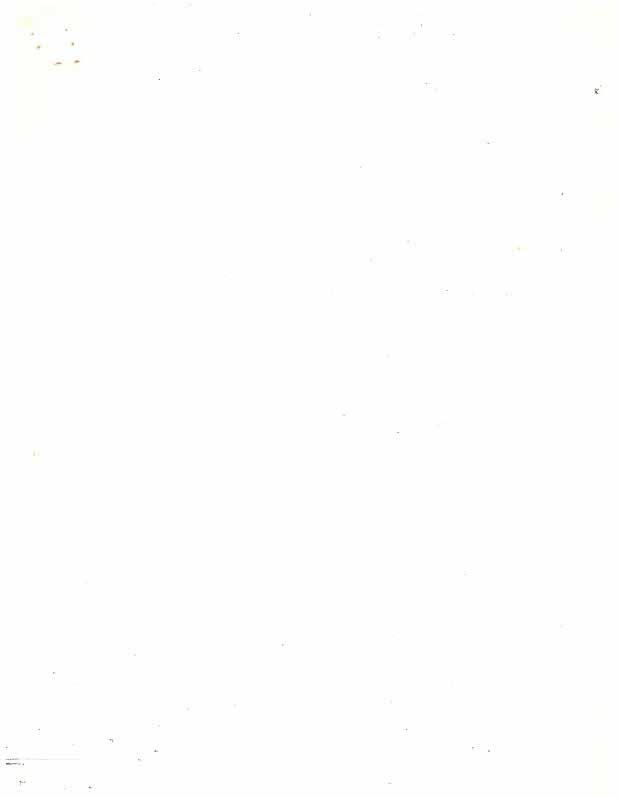
a. That we do nothing right now and wait for a complete study of the .universi ty.
b. That we continue with the status quo but add no new programs until funds become available.
c. That we do nothing now because we will surely be back to normal again.
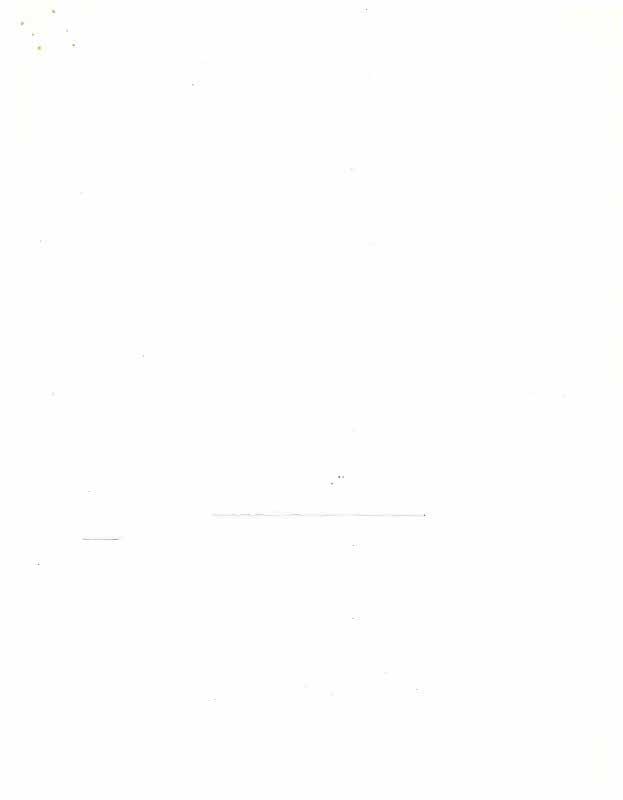
I find all of these unacceptable; they are mainly speculative. To accept any of these suggestions would be to perpetuate ourselves in a dream world and, _in the end, to court academic disaster. There is an air of urgency now. This is no time for procrastination. The time and the circumstances demand positive actions. I intend to respond to this demand.
To enable you to understand my actions and position on matters that come to me for attention, let me share with you my views on the purpose of this University and ·the issues of program orientation, goals, priorities and strategies consistent with our purpose as a community university and with the funding capabilities of the Territory.
First, the purpose of this University. Let's start at the beginning. Twenty years ago the Territorial College of Guam was created primarily to prepare teachers for the schools of Guam and to provide, as resources permit, instructions that would prepare local residents for other careers -which the expanding economy of the Territory was expected to demand.
In t hose early days there was common agreement among the political leaders of Guam, �s well as the college s ta ff, that the primary
purpose of the c ollege w as to pro vide for the manpow er needs of the co mmuni ty. There was clearly a t erritorial p urpose and focus.
"Co mmunity" w as gradually extended to incl ude the other islands of Micro nesia.
When t he College of Guam became a four�year inst it ut io n it s primary p urpo se did n ot change. I know becau se I was here, instrumental in this development. Polit ical leaders and the college
staff saw in t he four-year C ollege an inst it ution fo r up-grading
t he level of t raining and educa tio n, hence the quali ty of manpow ei
for the Territo ry. To underscore the purp ose of the inst it utio n,
the enabling legislat ion specif ically "declares that it is the
purpose of this chapter to pr ovide for an accelerated pro gram for
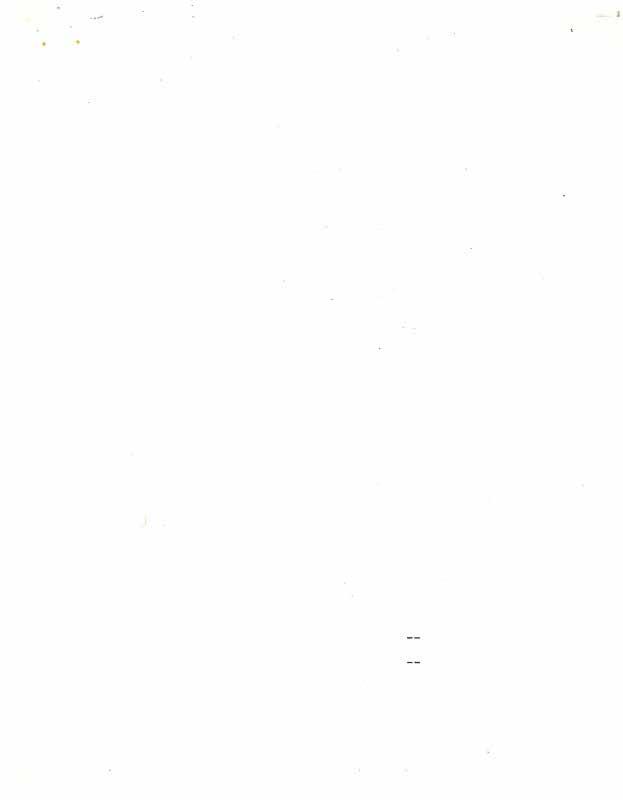
the training of l ocai teachers... ".
Again, when t he College became a Universit y and began to offer graduate pr ograms, the Act a utho rizing it did not change t he basic reaso n fo r it s exist ence. In t he eighteen months since I have been president , t he Governor and off icials of the Execut ive Branch,
the Board of Regen ts and every member of t he Guam Legislature, t he
b usiness, civic, and other leaders of t he Territo ry, and all of
the st udents wit h whom I have been in c ont act have talked with many st uden ts o n this camp us
and, I repeat , I
all of them have expressed agreement on the basic p urpose of this Universiey. I
know of no one on this campus --G uamanians, Micronesians o r
Statesiders -- who is here as a student only for the purpose of �� gettin�� liberal education for education's sake alone. All of -�those witµ whom I have discussed the matter have expressed to me their educational and personal objectives in terms of careers for service to the Territory and for their personal satisfaction and economic security.
From what I know of the intent of our elected officials, the students and the public, the basic purpose of this University in this Territory is clear and really very simple: namely; the maximum development in our students--young and old- -of a sense of vocation and a level of competence in careers that would enhance their ability to discover themselves and to contribute to the advancement and prosperity of the people of Guam.
Thus, I want today not so much to redirect but to reaffirm this fundamental purpose of our University and to say, gently but firmly, that it is neither the prerogative of the faculty, nor the administration, nor the Regents, nor all �f us together to unilaterally change that purpose; In pursuit of this purpose, I have taken steps, some drastic and painful, and will continue to take steps to mobilize all of the University's resources in positive response to the public purpose of this public institution. If some of you feel very strongly that this should not be the purpose of this Univers ity, I suggest that you convince �he Governor and the Legislature and other territorial leaders to change it for us. Meanwhile, all of us, individually and collectively, should feel obliged to pur sue the purpose we now have without equivocation. I solicit your understanding

and full cooperation. Among other things, there is something humanly pleasing and invigorating about a people united in a common endeavor . The burden and the difficulties somehow seem easier to bear, and accomplishments--big and small--easier to see and enjoy . Our stated purpose will give us direction to our present and futur� work, nurture the kind of internal cooperation that only a people united in a common purpose can give, and afford us a basis for evaluating our activities. It will help us in securing public understanding and_ support; and certainly in recruiting and retaining faculty, as well as in attracting students.
THE PROGRAMS OF THE UNIVERSITY: Consistent with the basic purpose of this University, what career education needs would UOG serve?· Obviously, UOG has never been in a position and will never be in a position to mount and sustain training programs in all areas that the Territory needs. Even if funds were readily available, which they aren't, this approach may not be the most practical or economical. Consequently, this University must, of necessity, restrict its programs to those that respond to the priority demands of the Territory . Some of these demands are quite obvious today -- preparing teachers, secretaries, government workers and so on. Some are emerging -- preparing people for careers in the travel industry in particular and in business in general. Some may be temporary in nature; others may be with us for a long time.
It is interesting to note that during the past twenty-two years of civilian government, the Territorial program pri orities of seven governors and eleven legislatures remain pretty much the same year
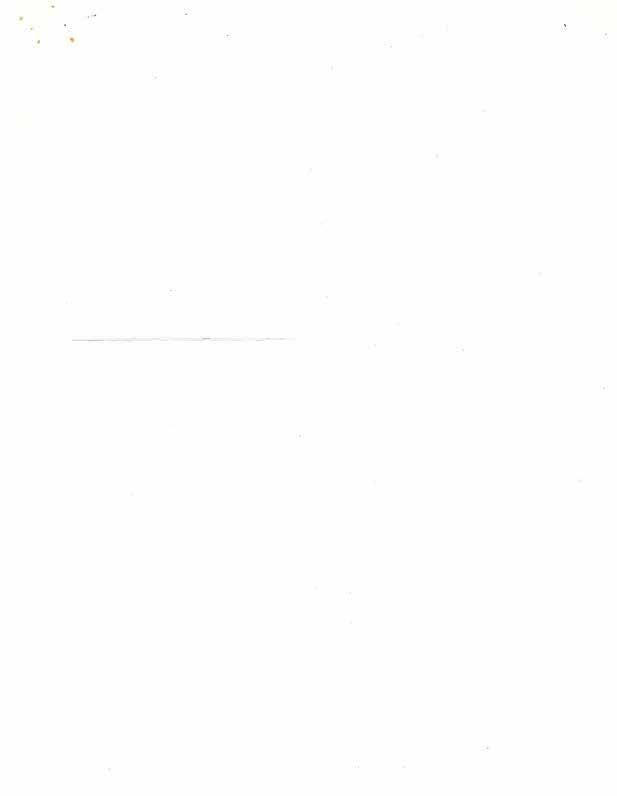
after year: education, health, economic and social development. Governor Camacho's priorities for FY 1973, and I suspect that of the 11th Legislature, follow the same pattern: economic and resource development, health and education. The same priorities are found in Micronesia as well. I don't expect any variation of this theme for the foreseeable future. Human needs--and politics--being what they are, these three concerns will no doubt continue to dominate the territorial scene for as far in the future as we can see.
Thus, for the University to be in the center of territorial develo pment and for it to make the maximum contribution to the prosperity of the people of Guam and Micronesia, it seems most appropriate that we concentrate our efforts on the five career programs:
(1) Education Careers: Preparing taachers will ha_ve top priority in this area. Preparing school principals and other educational specialists require equal attention. Again, this is consistent with the needs and the wishes of the Territory. Witness the large scholarship and stipend programs for teacher training authorized by law.

( 2 } Management and Administrative Careers:
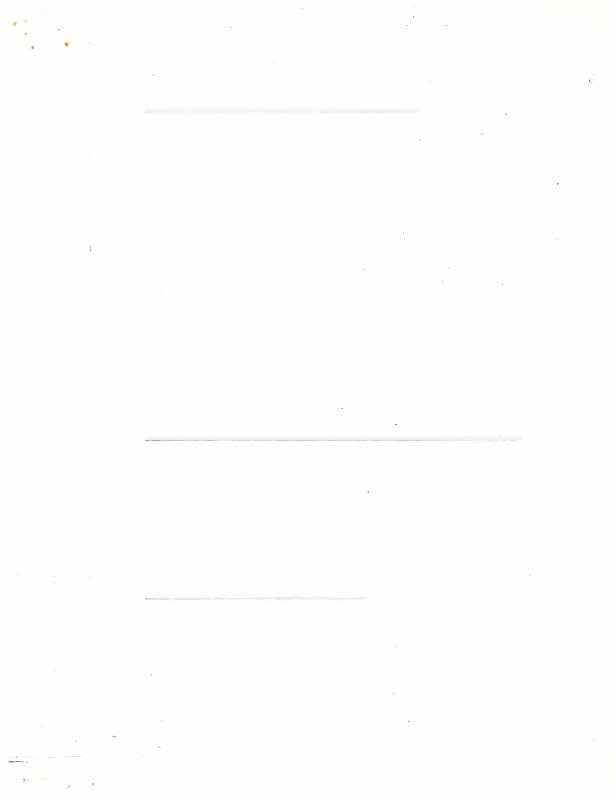
Preparing for entry and mid-level management/ administrative service in government and the private sector will command top priority in this area� We are constantly urged to produce qualified Guamanian administrators and managers for both public and private employment. As you know, major private enterprises are·owned and managed predominantly by Statesiders and foreigners. I would like for all of us to encourage indigenous Guamanians to prepare themselves for careers in private enterprises so that they can play a greater role in the economic growth of Guam as managers and entrepreneurs.
(3) Health, Medical, Social Service and Related Careers: Preparing students at all levels for careers in nursing, dental auxiliary, and health, medical technology and social work. The needs in this area are high today and will continu e to run high for the foreseeable future.
(4) Business and Technical Careers: Preparing secretaries, accountants, technical aides, technicians, etc. is also an important contribution to the economic growth of this island. 't-·7e need to do more in this area than we have been doing up to now. Incidentally, upon the recommendation of the Governor's office, which I fully support, progr�ms
for this purpose will have high funding priority in 1973.
(5) Marine and Ecology · careers:

This is an emerging area to which UOG and its Marine Lab and science programs should respond. This includes programs to prepare people for the development and utilization of marine resources, ecology, conservation, and so on.
As of now, these, in my judgment� are priority career areas. As the territory progresses, career needs would change. �'le must faithful to our basic mission but therefore be/flexible in our thinking and our commitments to our particular programs. Put your commitment on the purpose of ou� program institution and be flexible in your/approaches. One of the most serious problems we now face is reconciling those whose commitment, both personal and professional, are str onger in the direction of their own disciplines as ends in themselves than they are to the purpose of this University.
The number of program majors within the broad career areas above will be determined largely by demands and the availability of funds from year to year. Again our University is not expected to meet all the career needs of the Territory. For those who cannot find suitable career education programs here will be advised to go elsewhere, perhaps under a government scholarship or loan.
I urdcrst21.nd from t.;.10::.c '.:ho have studies the nc1.ttc::r thc:.i.t there is ,. �� an ir:mrc�;sive &!T,o'..1nt of evidence to sustain the asscrtior.. that the � � �. . ., . . ....�� .
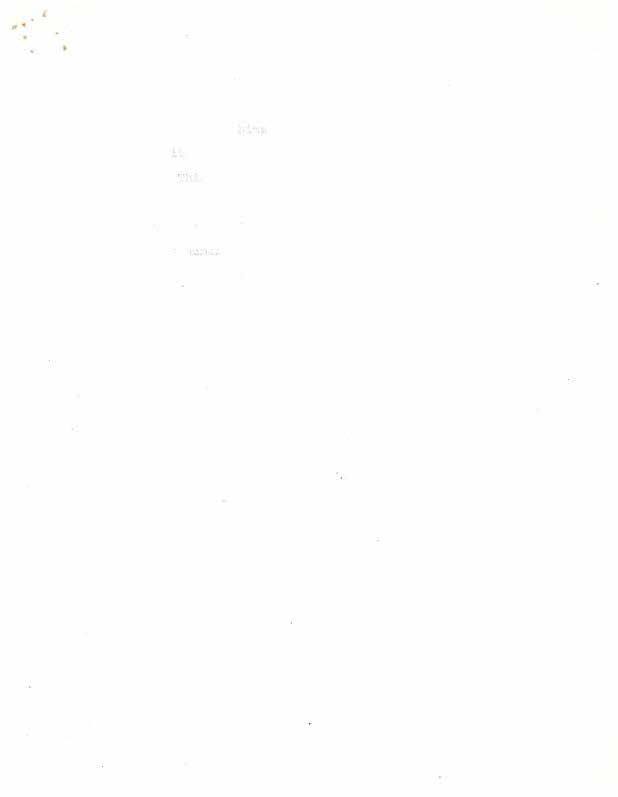
1.naividu�l d:u:;covc:i:.·r; elf and develops his pm·wrs to ccpe ' with the cont: his c::if,t.cnce through his v.cquirinq a sense of voc,;.t.ion�
,;-;ill disco\:t:!::: Uidt ,•;e i:ind ou:c ickntity t1nd our authenticity as a participc11Yt. :i.,, ) ·, ,if fc.:i.rs th:co"29l1 our vocation, career, or calling and tl1c eyercisc of our responsibility and nission in life.
to help each individual fin� his unique sense of vocation or c�reer.
This is the University's ccntr�l obl igation both to the individ11al and to the society which supports and sustai.ns it.
Career education is formulated on the preposition thc3.t -the obj(�ctive of the school is more tlian the dissern.ination of knovrlcdgc. Its central focus is the tlcvelop�ent of �u�nn beings who can cope with their lif 2 problerns artd becor:-:G cffecU.ve participants in society. Knowledge is surely instru�antal toward these ends, but it is no t an end-in�itself. The advocates of career educntion hold that the effectiveness of the schools can be neasured in terras of whether or not it has helped each individual discover hir:1Sel f, \·.rho.t he is good for, how he can achieve his sclf-fulfill ncnt, and how he· can contribute effectively to his fellow Den; in other words, the extent to i;.-:hich each individunl has developed his m•m sense of career ana vocation.
W'hile the manner in which this cu rriculum will be organized is not entirely explicit, the central focus of the instruction program is upon the discovery of self in relation to ·the world of work. The weight of sociological evidence points to the conclusion that man, through the ages, has found his identity in the occupational career in which he is engaged. One of the most serious deficiencies of the present curriculum is that it tends to avoid this issue. program
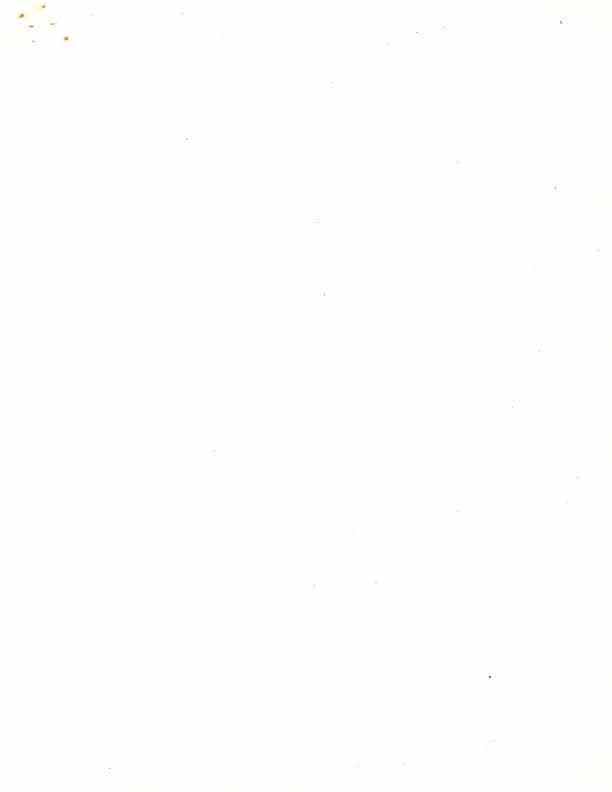
The shift in/�:1.phasis will give the University of Guam a clearly defined career development orientation. qf course, this is nothing new. We are, more or less, doing it now. Nor is it new in higher education. While it is not often put this way, this is what American public higher education has been doing all along: preparing teachers, lawyers, engineers, nurses, technicians, writers, historians, and so on. What may be new for us at this University at this time is that we are going to emphasize it and we are going to put money--the basic ingredient which makes things possible--into it.
For those who may be concerned about the status of our University because of the shift in emphasis, they·may be assured, if they need reassuring, --- that UOG will still be in the mainstream of American higher education, and that the shift will not jeopardize UOG's status as an accredited university. Indeed, the shift will enhance accredit ation, and when we do the job well, it will bring us a measure of distinction. The accreditation guidelines recommend that each institution look at self-study in terms of
opera t ional ob jec tive s -- which ca reer educa tion will have -- ra t her
t han conven tion al depar tmen t al st ructure s .
danger tha t it will become a t rade school.
Nor is t here any Far from it . By
shif ting the empha sis in our ob je c tive s, I am not sugge sting t ha t
the st an dard s es t ablis he<l for general educa tion, and ski ll and profe ssional cour ses nu st be lm•..e r than what t hey ou ght to be .

They needn' t be and s houldn ' t be. Nor am I sugges ting tha t UOG off er no gene ral educa tion progr am. We should and we will continue
to off er genera l education cour se s . Wha t this shif t in program
empha s is suggest s is t ha t all prog rams and cour s e off erings mu s t
be looked at in t erms of their re levancy to the t a sk of preparing
studen ts for career s , the cen t ral pu rpos e of ou r Univers ity. Gener al educ ation cours e s tha t are con sid ered impor t ant for
individual deve lopment a s par t of their t otal educa tion and career developmen t will st ay , pe rhap s in diff erent forms , and will con tinu e to require the appropria t e le vel of performance and achievement .
Thos e tha t are not, be t hey ge neral edu ca tion or career cour s e s , mu s t go by the way side.
The s hift in emp hasis does mea n, ind ee d, t hat the requirement s of career deve lopment --a s career dev e lopmen t need s re la t e to t his
Pacific island cornmunity- -in t erms of cou r s e s and activit ie s , will de t ermine the na ture and t he scope of t he general educat ion re quir ements, not the ot her way arourid. As long a s we all vigorou sly gu ard against any compromis e in the qu ality of t eaching , in bot h the general educa t ion and profe ss ion al off er ings , UOG, lik e other public univer sit ies such a s Wisconsin, �ayne S t a t e, Geo rgia S ta t e in
Atlant a, Ru tger s in New Jer s ey and sco re s of o ther s , no t only wil l
continue to be a univer sity in every impor t ant s en se, bu t it will be
a Community University; that is, a University tha t is part and parcel of the community and fully responsive to it.
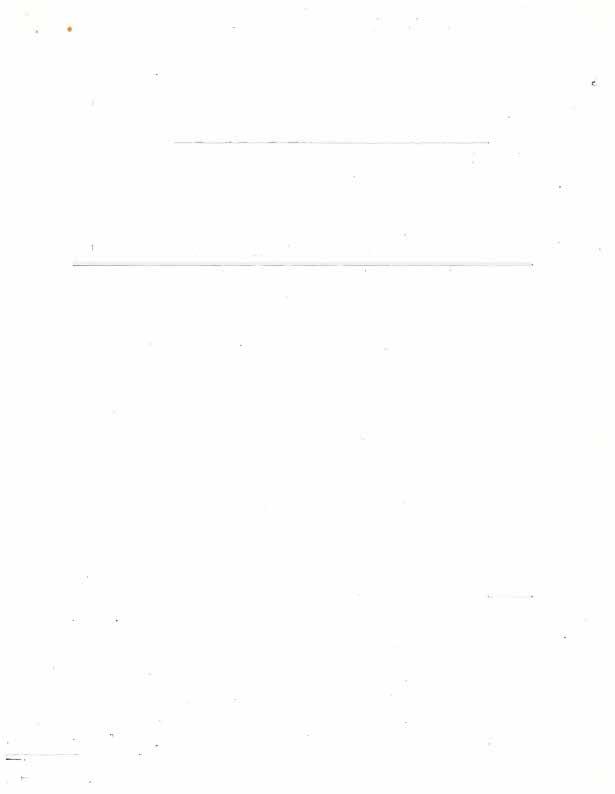
Let me now, share with you my views on two fundamental issues: the orientation and the charac ter of our University. They have a bearing on both the immedi ate future and the long -range development of our institution.
Tr aditional Univer sity vs Community (or Territorial) University
For most of the past twenty ye ars of its existence, · this institution has been recog nized and accredited for the commendable way in which it has emulated the form and subs tance and style of its sister American colleges and universities. Virtually everything about this Universi ty could be marked "m ade in the USA" -- its curriculum, its courses, .its or ganiza tion, its faculty and even in the way it isolated i tseif fr.om the community.
I recognize, of course, th at as a developing institution such emulat ion was necessary to give the University the found ation it neede.d. This is behind us now. UOG is an established instit ution that has come of age; and, as many of our young people are demanding today, it must proceed to be more relevant to the pressing needs of our Territory and Mic ronesia -- to the extent that Micr onesians want our University of Guam to serve them. By relevancy to the Territory, I mean moving UOG from the periphery of Guamanian life where it is now and placing it clearly in the center of the territorial scheme of things where it will
play a· v ital role in the deve lopment and growth of the Terr itory. The Un iversity of Guam can be a mean ingful and effective vehicl e for orde rly an d systemat ic change i n the Ter r itory only if it seeks to cr eate and devc�op courses and programs re le v ant to the needs of th e commun ity -- an assumption , i nc iden tally, which thousands of conc erned students and many e duca tors are now making throughout the United States of Amer ica at this time. Un iversi ty of Guam need not be a carbon copy of its sister coll eges and un ive rsiti es in· its or i entation , or i n its course of ferings , or i n its organ ization .
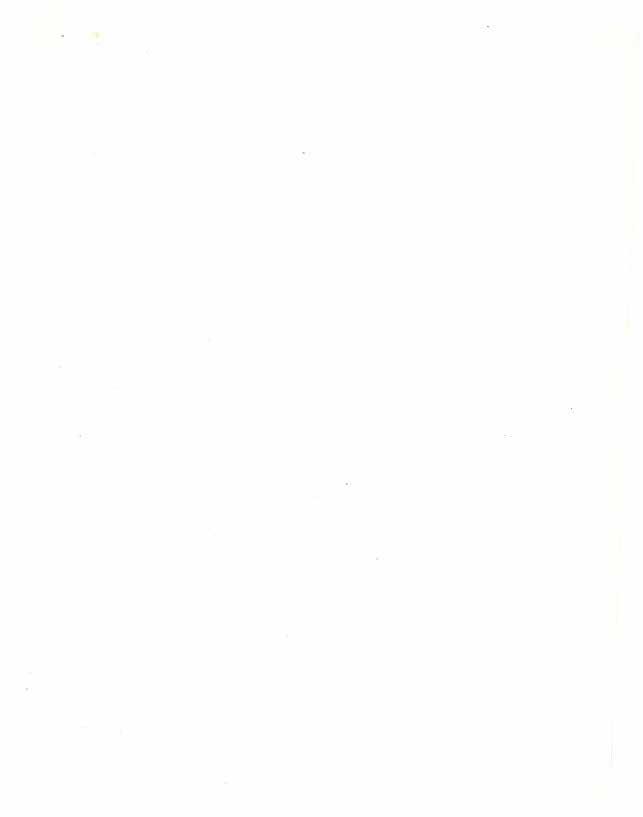
I some times get the unc omfor table fe eling that we are fast becomi ng a bastion of the "status quo " i n higher education holdi ng on to some of the very outmoded molds and goa ls that great public un iversiti es ha ve been discard i ng. We have only to look at our gene rally vague stat eme nt of goals, some of our curr icular patterns and courses , ou r organi zati ons , our teaching methodology. In these respects UOG has not re ally changed that much s ince i ts inception as a four -year college except that it has grown tr eme ndously in s ize and complexity .
Appropos to the terr itor ial or i entation of UO G, I beli eve that the time is ripe for us to establish our own insti tuti onal ide nti ty and develop a distinctive character for our institut ion which would make it un ique among universit ies in Amer ica , if• not in the wor ld. I ha ve in m i nd an inst itutional character that refle cts the geogr aphy, the culture , the goals, the
aspi rati ons , and the pr io rity ne eds of the society th at is Guam and Mi cronesi a.
I have in mind a un iversity:
wi th an image whi ch exhi bits a Guamanian and .Micrones ian spirit that pe rme ates the educat ional form, substance and style of our institution;
where Guamanian and Mi crones ian history, culture, art , music , economics, government, sociol ogy, and all othe r studied and aspe cts of Guamani an and Mi crones ian lives are/made me aningful in the pr ogr ams and in the· discipl ines whi ch we offer; fully
wh ich is/aware of and know ledge able about things Guamani an
• and th ings .Mi crone sian -- both the faculty and students of the Universi ty. For al l the th ings th at this Unive rs ity te aches and st udents learn about Guam and Mi crones ia, we mi �ht as .w ell be in South Cali fo rni a.
whi ch is most sensitive and resp ons ive to the career needs and as pi rati ons of the students most of whom will make Guam and Mi cronesi a the ir home and pl ace of work ;
wh ich has the flex ibi lity to off er in non- traditional ways , expanded oppo rtuni ties for the people of our commun ity who have had limited highe r educational expe ri ence but wi th a wide var iety of growth and work expe rience;
wh ich fo cuses its ef fort upon helping all st udents to progress thro ugh various st ages and leve ls of acade mi c as we ll
as sk il l pe rf ormance ;
ce rti fic ate and
-- whose/assoc i ate , ba cca l aure ate and mast er 's degree prog rams are functional in orie nt ati on and are directly re la ted
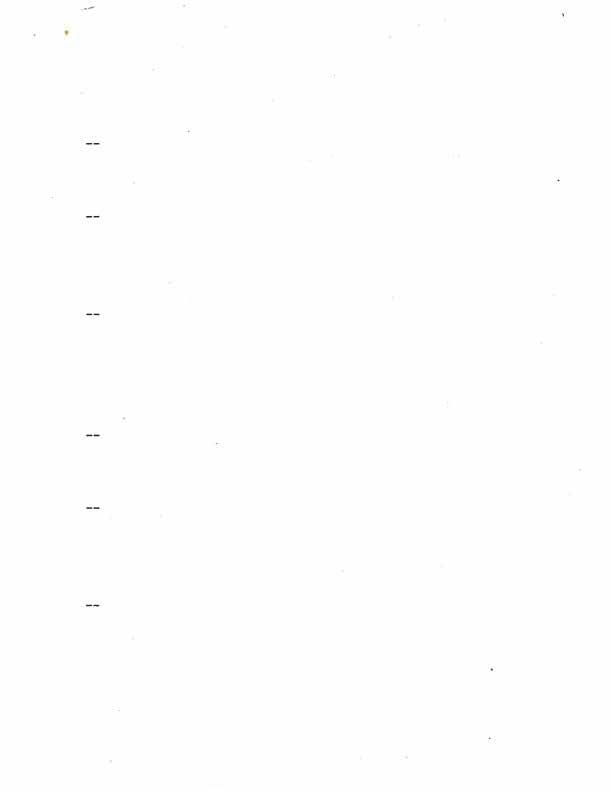
to the urgent de mands of the Terri tory for te chni cally and profes sionaly trained manpowe r; wh ose fa culty and students are in the fore front of te rritori al deve l opment -- he lpin g to improve the ove rall cultural , soc ial , ec onomi c, envi ronment al and pol iti ca l n aspects of te rri t orial life; he lping to prese rve the natural be auties around us ; he lping .t o prese rve all that is good in the tr adi tional culture , and bl ending these with the good in the int roduce d culture ; and he lping to cre ate or re cre ate an_ appre ci ation ot: te rritori al as we ll as na tional and international ar ts and music. Sp eaking of the latter, I hope that some day in the not- to o- d istant future , thi s Unive rs ity wi ll provi de le adership in creating for Guam and hope fully for Mi cronesia as we ll , a distinctively Guamani an and (Mic ronesi an) sound and tempo that re fle cts the ways of th is is land (i slands) as the distinctive Haw ai ian musi c ref lects the sound and tempo of that young state.
More importantly , I have in mind a Univer si ty: whose graduates are equ al , at the very least , or superior to graduates of othe r �...me ri can co lleges and uni ver si ties in their te chni cal and profess ional ski lls and in their gene ral educ at ion ba ckground ; whose graduates pos seEE a.I?- as s ur ance of competence to do something we ll and , in comp any wi th that , an acq uired sense .o f dedi catio n, compas s ion and commitment in te rms of doing something cons tr uctive about our terri t ori al probl ems .

Mos t importantly for us here on Guam, I have in mind a Universi ty: whose mark of distinct ion is evident in the everyday li ves of UOG graduates who are superior to any other college/ university graduates in their knowledge and understanding of-the peoples of this part of the world and in their ab ility to analy ze and cope fully with the varied problems of our terr itorial societies in transition.
I have outli ned above what I feel consti tutes one of the most chal leng ing and perhaps the most important and immediate tasks ahead of us. Our collective efforts must be in this direction ; because just as an indiv idual must know who, what and why he is before he can find a meani ngful and productive place in the wider social complex, so must a universi ty be secure in the knowledge of its own ident i ty, its own character, and especi ally its own integri ty, before it can func tion meani ngfully and producti vely as an important part of the higher educa tion commun ities of America and the world.
It is approp riate and timely that our pni versi ty on its 20 th year be assured of safe passage in its transi tion from exuberant adolescence to responsible maturity and thereby to- provide the Territory a true commun it y uni versity that it can afford to sustain.

In the light of the purpose , the or ientation and chara cter of our Univer sity, we need now to review very care ful ly every program , every ac tivity, every course to determine its re levancy to the ba siq mis s ion of our Univer sity . This review is not only an essent ial business but a top-priority under taking .
:
To help and guide all of us in the pursuit of th is impor ta nt ta sk , I have appointed , as you know , a University-wi4e Commi tt ee to look at all as pects of UOG operat ions , both academic and non-academic areas, and to advi se me on how best to ut ilize our human and mat erial reso ur ces to carry out UOG ' s central mi ss ion·. The Commi ttee , known as the Ad Hoc Committee on the Future of the Univ ersity, has already begun it s de libera tions .
I expl ained in gre ater det ail , in my memorandum to you of January 11, 1972 , the funct ions and re sponsibi lities of the Ad Hoc Commi ttee . I see no purpose in repeating them here . Si nce then , there have been con je cture s and speculat ions as we ll as suspici ons as to wha t is brewing at the Un ivers ity . I hope my el aboration today of the rati onale for re affi rming the purpose of th is Univer si ty and re-direct ion of the future growth of thi s ins ti tution consistent with its purpo se has served to cl arify matter s.
I as sure you that I have taken th is di rec ti on on the Univer si ty 's future not as the result of a 'bad dr eam but bec ause our growth and devel opment ha s tended to deviate sharply from the ins titu tion 's hi st or ical purpose , and becaus e the fi nanc ial pl ight of our government dictates prudent uti li za tion of av ai lable funds for educational

I maintain that th is can be accompli shed wi thout sa crifici ng academic quality. I firmly be lieve we need to si mp lify our curriculum becaus e nothing but good could come from su ch simpl if icati on. I bel ieve, too , that economies can be achieved without harming education. In fa ct, I see retren chment of th is kind as providing all of us an oppor tunity to do better what we have been do ing modera tely we ll or not we ll at all . If we fai l in this , I do not see how we can succeed by contin uing to expand wh il e our heads ar e in the cl ouds . The time is now to look down and see our wor ld as it is ; to li st en attentive ly and res pond fru itfu lly to the desires of the people we se rve .

